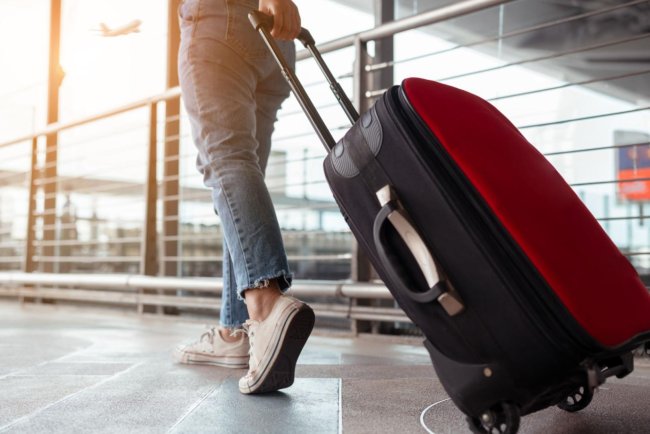1. What does travel insurance typically cover in relation to hurricanes?
Travel insurance generally covers trip cancellations, emergency medical expenses, and emergency evacuations if a hurricane affects your travel plans. Coverage specifics can vary by policy, so it’s essential to check the details of your plan to understand what is included.
2. Does travel insurance cover trip cancellations due to hurricanes?
Yes, many travel insurance policies offer trip cancellation coverage if a hurricane disrupts your travel plans. This usually applies if the hurricane causes significant damage to your destination or leads to flight cancellations. However, it is important to verify if hurricanes are covered, as some policies have exclusions.
3. Are there any specific conditions under which travel insurance will cover hurricane-related expenses?
Coverage for hurricane-related expenses generally applies if the hurricane was not a known event at the time you purchased the insurance. Policies often include coverage if the hurricane is classified as a "named storm" and causes direct impact on your trip, such as travel delays or cancellations.
4. What is the "Cancel for Any Reason" (CFAR) coverage, and does it cover hurricanes?
"Cancel for Any Reason" (CFAR) coverage is an optional add-on to travel insurance that allows you to cancel your trip for reasons not covered by standard policies, including concerns about hurricanes. CFAR coverage usually requires purchase within a specific timeframe after booking your trip and adds an extra cost to your policy.
5. How can I determine if my travel insurance policy covers hurricanes?
To determine if your policy covers hurricanes, review the policy document carefully. Look for sections related to natural disasters, trip cancellations, and emergency evacuations. Additionally, you can contact your insurance provider directly for clarification on hurricane coverage.
6. Are hurricanes considered a “pre-existing condition” for travel insurance purposes?
Hurricanes are generally not classified as a pre-existing condition for travel insurance. Pre-existing conditions typically refer to medical issues you had before purchasing the policy. However, hurricanes may be subject to specific coverage conditions depending on the timing and nature of the storm.
7. What should I do if a hurricane affects my travel plans while I’m already on my trip?
If you’re already traveling and a hurricane affects your plans, contact your insurance provider immediately. They can provide guidance on coverage for emergency evacuation, medical expenses, and other related issues. Document all expenses and disruptions for your claim.
8. How do I file a claim for hurricane-related issues with my travel insurance?
To file a claim, gather all relevant documentation, including receipts for expenses, proof of trip disruption, and communication records with airlines or hotels. Follow your insurance provider’s claims process, submit the required documentation, and keep copies of everything you send.
9. Can I get coverage for hurricanes if I travel to a high-risk area during hurricane season?
Coverage for hurricanes may be limited if you travel to a high-risk area during hurricane season, especially if the risk was known before purchasing the insurance. Policies vary, so check with your provider about coverage specifics for high-risk destinations.
10. What types of travel insurance policies provide the best coverage for hurricanes?
Comprehensive travel insurance policies often provide the best coverage for hurricanes. Look for policies that include trip cancellation, emergency medical expenses, and emergency evacuation coverage. Consider policies with CFAR coverage for added flexibility.
11. Are there any exclusions related to hurricanes in travel insurance policies?
Yes, some policies may have exclusions related to hurricanes, such as not covering storms that were already named or forecasted at the time of policy purchase. Review the exclusions section of your policy to understand any limitations related to hurricanes.
12. How can I prepare for hurricane season when planning a trip?
Stay informed about weather forecasts for your destination, purchase comprehensive travel insurance, and have a contingency plan in case of disruptions. Monitor updates from your insurance provider and be prepared to adjust your plans if necessary.
13. Will travel insurance cover expenses if my flight is canceled due to a hurricane?
Yes, if your flight is canceled due to a hurricane, travel insurance with trip cancellation or trip interruption coverage may reimburse non-refundable expenses. Ensure your policy covers travel delays and cancellations caused by natural disasters.
14. What happens if a hurricane damages my accommodation while I’m traveling?
If a hurricane damages your accommodation, travel insurance with trip interruption or emergency evacuation coverage may help. Contact your insurance provider to report the issue and seek guidance on how to proceed with your claim.
15. How does travel insurance handle emergency evacuations due to hurricanes?
Travel insurance with emergency evacuation coverage will help cover the cost of transportation to a safe location or back home if you need to be evacuated due to a hurricane. Ensure your policy includes this coverage and contact your provider if evacuation becomes necessary.
16. Are there any special considerations for purchasing travel insurance for hurricane-prone destinations?
When purchasing travel insurance for hurricane-prone destinations, choose a comprehensive policy with strong coverage for natural disasters. Consider CFAR coverage for additional flexibility and review the policy’s exclusions and limitations related to hurricanes.
17. How does the timing of purchasing travel insurance affect hurricane coverage?
The timing of purchasing travel insurance can affect hurricane coverage. Policies often require you to buy insurance before a hurricane is named or forecasted to be covered. Purchase insurance as early as possible to maximize your coverage options.
18. What should I include in my documentation when filing a hurricane-related claim?
Include detailed documentation such as receipts for expenses, proof of trip disruption (e.g., flight cancellations), and communication records with airlines or accommodation providers. Provide a clear account of how the hurricane impacted your trip.
19. Can I get a refund on my travel insurance if I decide not to travel due to a hurricane?
Refunds for travel insurance are generally not available once the policy is purchased. If you have concerns about hurricanes, consider purchasing CFAR coverage to allow for cancellation for any reason, including worries about hurricanes.
20. What are the best practices for dealing with travel insurance claims related to hurricanes?
Document everything thoroughly, follow the insurance provider’s claims process, and stay in communication with your provider for updates. Be patient, as processing claims can take time, especially during hurricane season when many travelers may be affected.




















